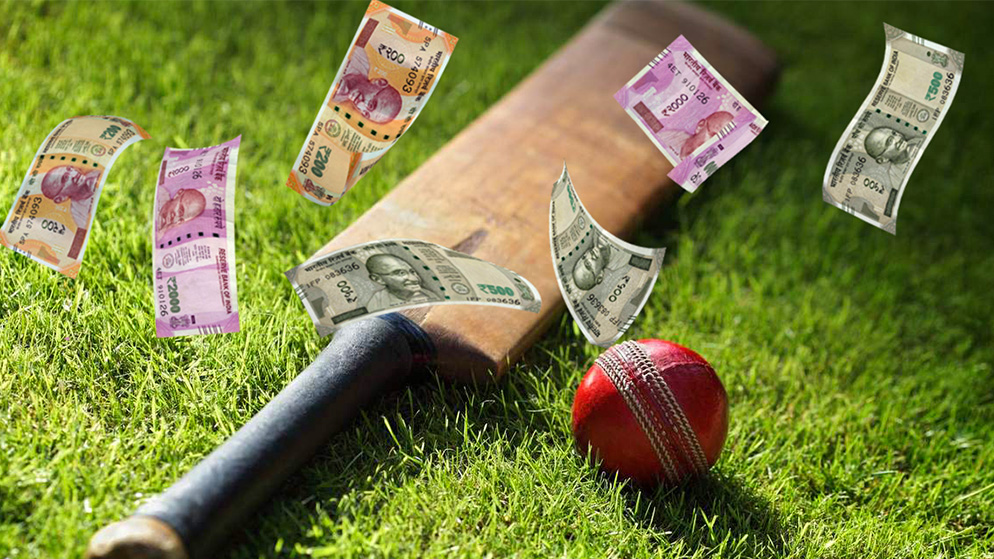A sport divides the world
A sport divides the world
The former British colonies enthusiastically celebrate the start of the Cricket World Cup in Jamaica. Other countries react with disinterest to the fifth largest sporting event in the world.

He will set himself on fire, Indian Tarun Sharma threatened, if he is not allowed to sell his kidney. The seller earns a mere 50 euros a month, too little for a plane ticket to Jamaica. "Anyone can survive on a kidney, but you only see India win the cup in the West Indies once," the 23-year-old from Jamshedpur said after authorities banned him from using his organ to pay for a ticket to the Cricket World Cup. Sharma has since changed tactics and set up a donation box outside his home.
But because that also failed, he missed Tuesday's World Cup opener between the co-hosting eight island nations' West Indies, who clearly defeated the world-class team from Pakistan. He will have been among the millions of TV viewers who make the six-week tournament the fifth-biggest sporting event in the world. The 51 matches will be watched more than two billion times, according to a study by the Indian market researcher Mindshare Insights - surpassed only by the World Cup (37 billion), Formula 1, the Olympic Games, and the NBA basketball league. On the outcome of events, the best online cricket betting apps began to take bets.
Yet the world is divided more than by almost any other sport. Anyone who grew up in former British colonies like India, Pakistan or the recently formless top favorite Australia is considered to be at serious risk of spending the next six weeks exclusively watching men in long tight pants. They throw - as the British did centuries ago - with a ball on three sticks ("stumps"). A batter tries to bat the ball away, as in baseball, and if he succeeds, he runs a few meters to other stumps to score "runs" and thus points.
In Germany, where around 2,000 people play organized cricket in clubs, no broadcaster wanted to offer this show - that's pretty much true for all of mainland Europe. And so twelve-time German international Asif Khan has to improvise once again. At work, the Indian-born player has the live ticker popping up on the screen, after which the 30-year-old goes to a Berlin sports bar that broadcasts images from the English sports channel "Sky."
"Compared to them, we're third division," says the batsman from DSSC Berlin, who trains once a week in winter and twice a week in summer. In India, he says, cricket has the same status as professional soccer in Germany. More than 100,000 fans regularly attend matches in Calcutta. Thirteen years ago, he was considered a great talent in India, but then decided against a professional career and to study business administration and computer science - and to emigrate to the cricket no-man's land of Germany. Before the First World War, the sport flourished in Germany, and in 1914 there were 26 clubs in Berlin alone, but under the National Socialists, the British popular sport was considered undesirable. Only slowly is the German Cricket Federation (DCB), newly founded in 1988, gaining strength. "They send a lot of coaches to schools. Not everyone has to play soccer," Khan says.
Television is hardly going to help: Even if World Cups are no longer played over five days as they used to be, they are usually played from 9:30 in the morning until sunset. "The international federation has offered ready-made pictures to German broadcasters," says DCB managing director Siegfried Franz, "but that's hopeless." But the event in Jamaica, which costs around 300 million euros, will remain a foreign world even for German amateurs.

More than 2,000 singers and dancers performed at Sunday's opening ceremony in Trelawny. Players like the captain of the two-time title-winning West Indies, Brian Lara, earn like soccer stars. The international association collects 416 million euros from sponsors alone, reported https://expressdigest.com/mobile-gaming-pros-and-cons/. At least enough of this money reaches the German association to support trips by young players and the national team. With success: The first German youth players have already been invited to training camps in England.